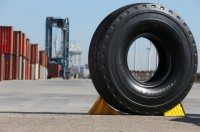20% of tyres in Europe will be sold online by 2020
Current market share estimated at 7.8 per cent
The influence online tyre retailing is growing so fast that 20 per cent of Europe tyres sales could take place online by 2020. That’s the view of market analysts at Frost & Sullivan, which also reports that the influence of the internet on the auto industry can be seen in the continuous growth of the eRetailing market for automotive parts in general. According to the analysts, eRetailing of automotive components has given aftermarket participants a fresh boost and presents a new sales channel dynamic enough to be in sync with evolving macro-economic conditions and also flexible enough to address customer needs by offering a personalized shopping experience.
Tyres are by far the biggest segment amongst all automotive replacement parts sold online, contributing close to 46 per cent of total aftermarket eRetail revenues for auto parts in Europe and being worth 2.5 billion euros in 2013.
“Rapid growth in online tyre retail is indicative of a shift in aftermarket consumer behaviour with respect to cost, availability and choice,” says Frost & Sullivan senior research analyst, Anuj Monga. “The online sale of tyres currently constitutes 7.8 per cent of the total tyre aftermarket. Growth in online tyre sales therefore challenges the current decline in sales, as witnessed by the broader tyre aftermarket, particularly through traditional retail channel.”
Furthermore the analysts predict that tyre retail will constitute roughly about 20 per cent of the total tyre replacement aftermarket revenues by 2020. “France, Germany and Russia are the countries leading this growth with an online tyre retail penetration of 12 per cent, 11 percent and 8 percent respectively while the UK, Italy and Spain are also expected to experience strong growth,” Monga continues. The inference is that these markets remain in single digit market shares.
Online tyre retailers are matching service levels of traditional tyre retailers to facilitate this growth, which includes efficient tyre fitment and in most cases return of worn out tyres. Getting this so-called “bricks and clicks” combination has long been understood to be at the root of success in this segment.
Some eRetailers selling ”refurbished” tyres
While price discounts of tyres sold online is a major pull for customers, the possibility of choosing from a wide variety of make and models is also said to be a key driver. Another area where tyre eRetailers can possibly differentiate themselves are refurbished tyres. However, if this means part worn tyres and not retreads, this is likely to cause some degree of consternation. Either way eGommerce, an Italian startup tyre eRetailer, is already said to be exploring this avenue. Other discounts and freebies also belong to the tried means of attracting customers to the online channel.
New market players are attracted to the market, as customers show a growing confidence in purchasing replacement tyres online. The shift in consumer attitude has lead companies to offer personalized shopping solutions, of which the ‘door-step delivery and fitment’ service is the most popular. Offering consumers a choice of tyre fitment at a location of their choice has already triggered considerable attention, with companies like Allopneus (France) aiming to enrich the customer purchase experience.
In terms of revenues, German pioneer Delticom led the market by some way in 2013 with 600 million euros in sales. The company has 137 online shops spread across 42 countries and a network of 35,000 professional fitting garages. Other noticeable names in the tyre eRetail market are Blackcircles.com, Oxyo-Pneus, PopGom, Pneus Online, Oponeo.pl and eGommerce. These new market entrants are expected to develop new business models in the future, which will further foster growth in online business. The market is however, expected to witness significant consolidation in coming years, as companies look to gain a stronghold in this competitive environment. If recent years are anything to go by this means small companies folding under intense price pressure at the bottom end of the market and large players merging (in all likelihood with private equity or other large backing) at the top of the market – something we saw in mid-September 2013 with the Tirendo/Delticom deal.





Comments